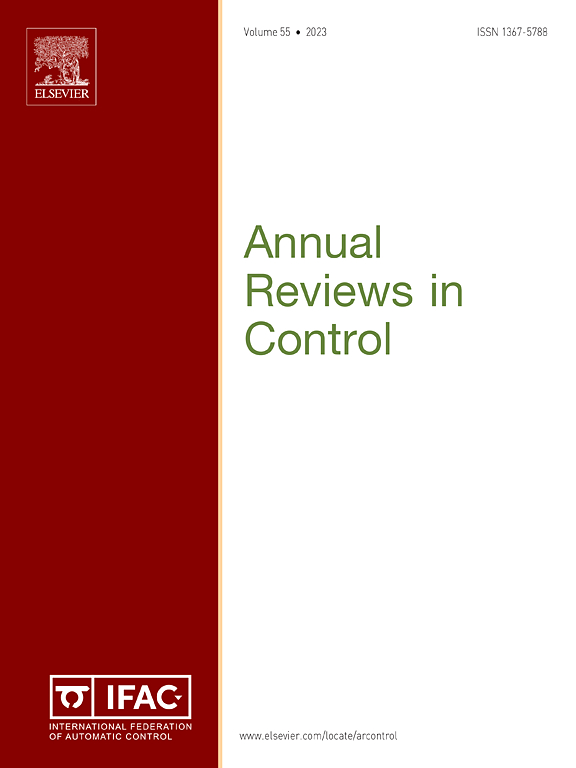Generalized inverse optimal control and its application in biology
IF 10.7
2区 计算机科学
Q1 AUTOMATION & CONTROL SYSTEMS
引用次数: 0
Abstract
Living organisms exhibit remarkable adaptations across all scales, from molecules to ecosystems. We believe that many of these adaptations correspond to optimal solutions driven by evolution, training, and underlying physical and chemical laws and constraints. While some argue against such optimality principles due to their potential ambiguity, we propose generalized inverse optimal control to infer them directly from data. This comprehensive approach incorporates multi-criteria optimality, nestedness of objective functions on different scales, the presence of active constraints, the possibility of switches of optimality principles during the observed time horizon, maximization of robustness and minimization of time as important special cases, as well as uncertainties involved with the mathematical modeling of biological systems. This data-driven approach ensures that optimality principles are not merely theoretical constructs but are firmly rooted in experimental observations. The inferred principles can also be used in forward optimal control to predict and manipulate biological systems, with possible applications in bio-medicine, biotechnology, and agriculture. As discussed and illustrated, the well-posed problem formulation and the inference are challenging and require a substantial interdisciplinary effort in the development of theory and robust numerical methods.
广义逆最优控制及其在生物学中的应用
从分子到生态系统,生物体在所有尺度上都表现出非凡的适应性。我们相信,这些适应中的许多都是由进化、训练以及潜在的物理和化学定律和约束所驱动的最佳解决方案。虽然有些人反对这种最优性原则,因为它们潜在的模糊性,我们提出广义逆最优控制,直接从数据中推断它们。这种综合方法结合了多准则最优性、不同尺度上目标函数的嵌套性、主动约束的存在、在观察时间范围内最优性原则切换的可能性、鲁棒性最大化和时间最小化作为重要的特殊情况,以及与生物系统数学建模相关的不确定性。这种数据驱动的方法确保了最优性原则不仅仅是理论结构,而是牢固地植根于实验观察。推断出的原理也可以用于前向最优控制,以预测和操纵生物系统,可能应用于生物医学,生物技术和农业。正如所讨论和说明的那样,适定问题的表述和推理是具有挑战性的,需要在理论和稳健的数值方法的发展中进行大量的跨学科努力。
本文章由计算机程序翻译,如有差异,请以英文原文为准。
求助全文
约1分钟内获得全文
求助全文
来源期刊

Annual Reviews in Control
工程技术-自动化与控制系统
CiteScore
19.00
自引率
2.10%
发文量
53
审稿时长
36 days
期刊介绍:
The field of Control is changing very fast now with technology-driven “societal grand challenges” and with the deployment of new digital technologies. The aim of Annual Reviews in Control is to provide comprehensive and visionary views of the field of Control, by publishing the following types of review articles:
Survey Article: Review papers on main methodologies or technical advances adding considerable technical value to the state of the art. Note that papers which purely rely on mechanistic searches and lack comprehensive analysis providing a clear contribution to the field will be rejected.
Vision Article: Cutting-edge and emerging topics with visionary perspective on the future of the field or how it will bridge multiple disciplines, and
Tutorial research Article: Fundamental guides for future studies.
 求助内容:
求助内容: 应助结果提醒方式:
应助结果提醒方式:


